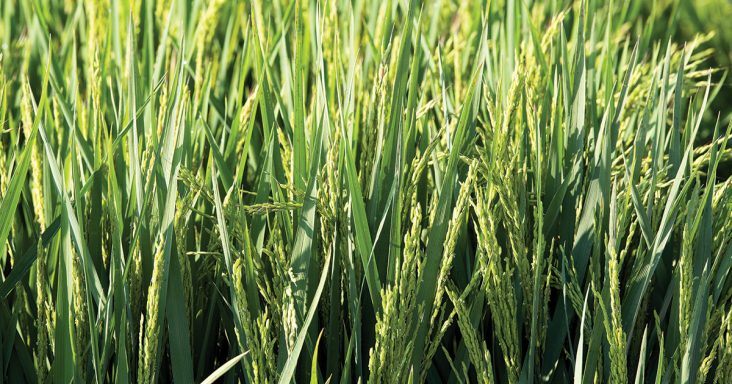New partnership aims to improve agriculture data
by March 14, 2020 2:48 pm 1,157 views

People produce bytes of data on a daily, hourly, and even a minute-by-minute basis. According to Visual Capitalist, 463 exabytes — that’s 463 bytes followed by 18 zeros — of data will be created daily by 2025.
Businesses can use this data to better serve customers, analyze trends, and cater products towards customers among other things. Agriculture is no different. Modern production equipment such as planters, sprayers and harvesters are equipped with technology to gather data for the individual producer’s use. Corralling that data for research is difficult because it’s scattered across the state and often, equipment may have proprietary software that prevents the data from being easily imported into usable formats, according to the University of Arkansas System Division of Agriculture.
A new partnership between the cooperative extension service and Ag-Analytics will collect and analyze volumes of ag data in an attempt to create better decision making tools for farmers that will, in turn, help farmers improve their yields.
Ag-Analytics is a farm management platform that specializes in the analysis of precision agriculture data. The platform will collect data and put it in a format that can help growers and researchers make decisions.
“The partnership with Ag-Analytics will allow us to receive precision ag data that we didn’t have access to prior,” said Karen Watts DiCicco, extension digital and information technology innovation manager for the University of Arkansas System Division of Agriculture. “This will allow us to do research and develop new innovative technology tools.”
“That’s where our partnership with Ag-Analytics comes in,” said Jason Davis, extension application technologist for the Division of Agriculture. “With producers’ permission, Ag-Analytics will facilitate data collection from equipment located across the state and provide it to our researchers in usable formats.”
Davis said the partnership will use machine learning and artificial intelligence to create improved decision tools for Arkansas producers.
“Our society has changed from an industrial society to one of digital technology and one that is data-driven,” Davis said. “In agriculture, we’ve seen a similar shift from the industrial model to precision agriculture. The industry is moving forward with more and more incorporation of big data and artificial intelligence. It’s important for that to be part of our future.”
County extension agents are asking Arkansas growers and producers to participate in the data analysis led by Davis and DiCicco. Farmers can sign up online to participate and opt-in to share data confidentially with the University of Arkansas System Division of Agriculture at analytics.ag/uaex.
The information gathered on individual farms will be integrated with hundreds of terabytes of satellite, soil, weather and other data. The data will remain confidential and personally identifiable information will be stripped from the data sets.
Sign up is free and farmers who participate will also obtain access to Ag-Analytics resources such as historical and current weather conditions, satellite imagery and data, and insurance estimates.
“Our partnership will lead to innovations that allow farmers to utilize artificial intelligence in digital ag applications by leveraging their university extension service with the Ag-Analytics platform,” said Joshua Woodard, chief executive officer and founder of Ag-Analytics. “It’s a win-win-win for us, growers, and the University of Arkansas System Division of Agriculture.”
Primary efforts will involve high-resolution yield modeling for Arkansas cropping systems, particularly in regard to variety performance, climate and crop interactions, as well as nutrient response management and decision tools development.
The data collected will inform researchers’ work, and in turn, Ag-Analytics will use the research to develop modeling tools that producers can use to help project their yield based on different variables.
“With new access to a broad set of agricultural data and the tools to make predictive models that help our producers, it’s an exciting time for Arkansas agriculture and the University of Arkansas System Division of Agriculture,” Davis said.
The project is being funded in part by a $5,000 grant from Microsoft Azure for cloud-based services.
